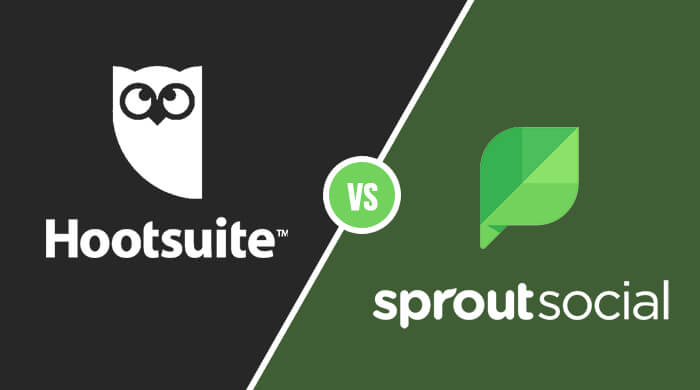Gen Z, or the post-millennial generation is the diverse set of individuals to date who identify and connect with the world through the internet. They are super connected, craving endless information and infinite connectivity.
These smart groups make their way both offline and online. They are distinct. In simple words, these sects are happy with a phone and a few apps that help them converse, commute, order food, chat, post, shop, entertain, bank, influence, and productively work as well!
Stanford Affiliated Research calls Gen Zs as, “highly collaborative, social, self-reliant and pragmatic.”
Only during and after the COVID-19 pandemic did the rest of the world begin catching up with Gen Zers.
So, why are people in this category so important? Why should we value them?
If you are not aware, here are a few facts;
Gen-Z is the most extensive set of expressive-minded (most often misunderstood as lazy), and they have more voice (through online posts and shares). They prioritize beliefs, values, identity, and belonging. They can cluster with like-minded people via online platforms.
So, is it worth understanding how Gen-Z operates? Without any ado, yes, considering the evolution of the world from the industrial phase to the digital phase. We can learn so much from this prominent group (forget the misnomers in their slang!) in terms of connecting and being authoritative.
Here, in this blog, we try to uncover their patterns and preferences to help you relate to them in a new way (with openness and trust). Businesses can benefit to a greater extent from these TikTokers and Instagrammers.
Generation Z Has Witnessed Online Platforms Since their Birth:
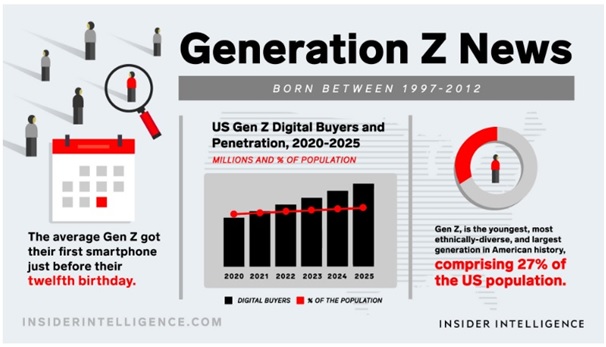
(Source: insiderintelligence.com)
Generation Z (born between 1997-2012) is the first generation of digital natives who have never seen a world without digital devices, social media networks, and online connectivity. Online media is intricately and indivisibly woven into these digital borns' social life, play, learning, interaction, and relationships. Gen Z is more familiar with online games, online education, online chatting/dating, etc., than any other previous generation.
Gen Z are digital natives who have grown with digital technology, online platforms, and social media. The generation is more interactive online and craves images, games, and videos more than Generation Y (digital immigrants who adopted technology later in life).

Gen Z Identifies More with their Online Identity than their Physical World Identity
The meaning of identity takes shape based on the context and purpose to which it is being referred. Identity takes shape in broader collectives, social circles, or individual spaces and can take multiple forms, such as personal identity, cultural identity, religious identity, gender identity, national identity, online identity, etc.
Online identity:
In the digital world, the ‘online identity’ is defined by personal attributes projected on online channels such as social media, streaming platforms, online communities, discussion forums, online marketplaces, etc. The online identity is formed when you interact, buy, participate, and/or post on online channels. It is the sum of characteristics and behavior as perceived by online participants.
Gen Z identifies more with their online identity than their physical world identity.
The unrestricted access to influencers via social platforms, more exposure to political happenings, and the availability of sophisticated digital tools have shaped GenZ’s living arena. No wonder why Generation Z finds it difficult to connect with old styles of physical instruction, connection, and language used by their predecessors. Identities in online communities deeply impact Gen Z users whose lives are guided and centered around the omnipresent digital channels.
So, how can businesses benefit from Gen Zers Online Identity?
GenZ is an important consumer group that believes in trends and follows them religiously. They are also trendsetters themselves. Products that find favor with Gen Z will trend and create huge revenue opportunities for businesses. However, while Gen Zers are more inclined to follow ongoing trends, certain trends may be followed only if they buy a particular product. For example, chaotic fast fashion that is driving sales for companies like Shein is trending in 2023. Now it is necessary to buy such clothes if someone wants to follow the trend. This is where Gen Z differentiates itself from its predecessors. Gen Z is willing to spend on products just to follow a trend, and businesses that can quickly market and supply products that are trending with Gen Zers can bag the revenue opportunities.
Trends can necessitate buying certain products, and Gen Z is ready to buy products just to follow a trend.
The trend of purchasing eco-friendly fashion products is also rising among Gen Zs. Brands that recognize and adopt Gen Z trends will keep themselves afloat.
In his seminal text on Generation Z titled: ‘Zconomy: How Gen Z Will Change the Future of Business - and What to Do About It,’ Jason Dorsey, the world-renowned speaker on Generational Kinetics, explains how companies that fail to comprehensively adapt to GenZ’s thinking philosophy will cease to exist in the next 20 years. On the contrary, brands attuned to the values that matter to Gen Z will succeed.
Gen Z is the generation that has witnessed Afro-American presidents getting elected twice, same-sex marriages getting legalized, rising to the power of a few mega tech companies, and Youtubers sitting in distant African villages becoming millionaires. These events have had life-defining effects on the mindsets of Gen Z, shaping their priorities, values, consuming habits, and preferences. Social values are important for Gen Z, and they evaluate the social and environmental, and community effects of brands before buying their products. Brands that align with their values enjoy Gen Z’s loyalty.
Gen Z has supported the laws lending support to LGBT and their inclusion in the mainstream.
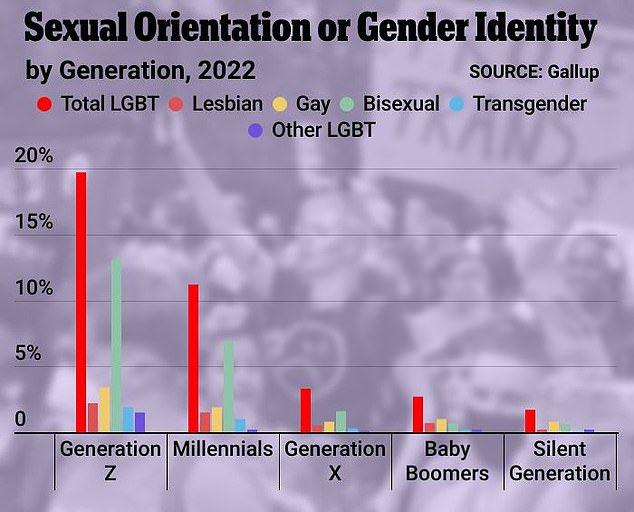
(Source: Gallup)
Brands like Target, Reebok, Dr. Martens, etc., know that supporting LGBT rights will put Gen Z in favor of their companies. Therefore, these businesses advertise and sell their products during the Pride Month (a June event that celebrates the lives and rights of LGBT) to show their support for LGBT. These brands have also pledged huge money to show their support for LGBT people and are favorites of GenZ. Even their landing pages are designed to project their vision:
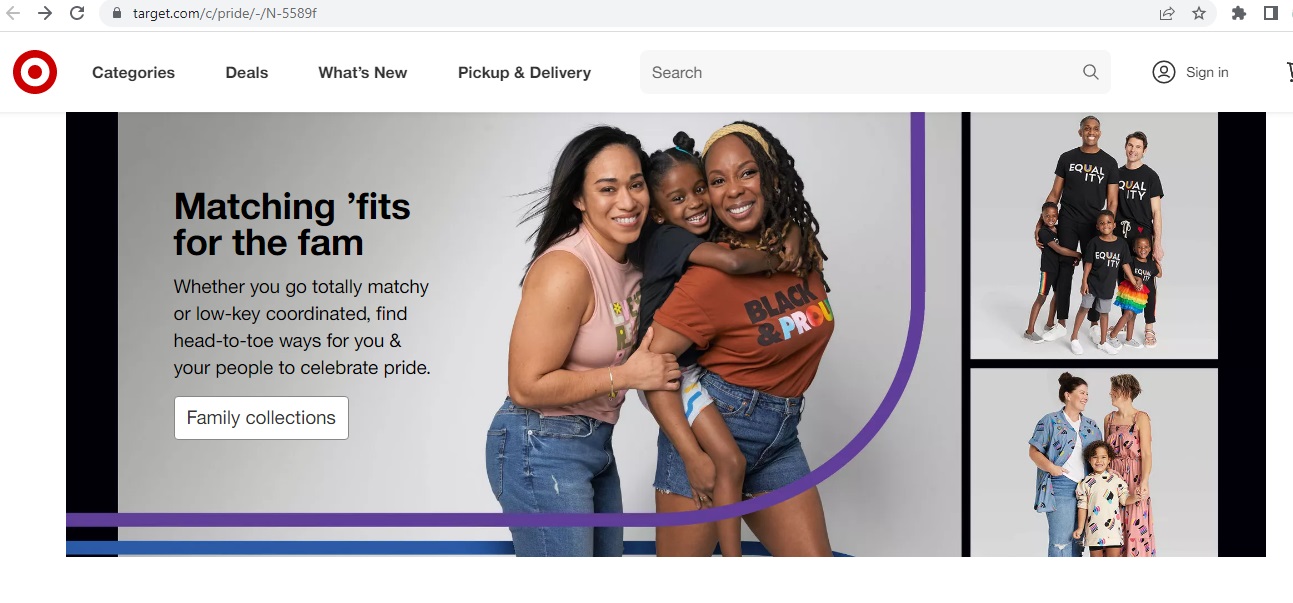
(Source: The landing page of Target Brand: (Specially designed for Pride Month)
The world’s largest coffee chain, Starbucks’ quarterly revenue in the second quarter of the fiscal year 2022 was its highest till now and driven completely by GenZ cohorts who love Iced Drinks, said Starbucks executives. This is again a major example of how if something trends with Gen Z can create huge revenues for businesses.
A pivotal generation for businesses, Gen Z has buying capacities of billions of dollars.
With its focus on sustainability and ethical consumption, Gen Zers are turning to plant-based diets as a way to support these values. Veganism is also seen as a healthy lifestyle choice. Also, the iGen generation desires digital, mobile-friendly solutions, and therefore, cloud kitchens, online food delivery platforms, and online restaurants that can serve vegan options to Gen Z have great opportunities going ahead.
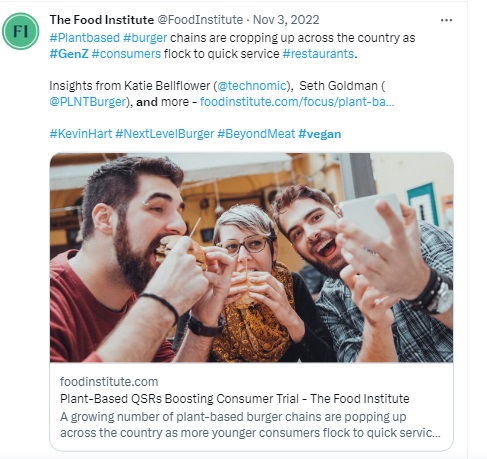
The growing concern for health is a global trend that is impacting the attitudes of Gen Z towards products that they buy. Brands that create healthy products or products that can be classified and promoted as healthy will find more favor with Gen Z. Brands that understand this are creating online ads that focus on health and wellness factors in their products and services.
For example, AC companies are advertising their products as ‘healthy for living’ to attract buyers, especially the Gen Z ones. Companies are running smart health campaigns to project their products as good for health. We are noticing a trend of advertisements with ‘healthy,’ ‘healthier,’ and ‘healthier living’ as the top keywords displayed on slogans, taglines, advertisement titles, banners, etc.

(Source: Haier Acs)

(Source: Helloexpress)
However, GenZ is smarter in recognizing gimmicks from reality. Any fraudulent attempt by a brand just to impress GenZ is bound to face backlash. On the other hand, brands that truly remain authentic may find more traction from Gen Z, even if they are unhealthy. For example, FFUPs, the snack brand that marketed its product as ‘unhealthy but delicious,’ have found favor from GenZ just because they were honest and transparent in their marketing.

Gen Z values messy realness more than just on-paper perfectness.
Gen Z is a demographic that is considered to be one of the largest groups of consumers with a burgeoning purchasing power. This compels businesses to source maximum data about their purchasing behavior, preferences, and shopping habits. Now, when Gen Z is more present online than in the physical world, their online activities and data possess significant monetary value for brands. No wonder why all businesses are hovering around social media to collect the personal data of these consumers.
Users' online identity is a prized possession for website operators, digital advertisers, and social platforms.
GenZ is Primarily Inspired by Social Media Networks
Advertisers need to evolve their strategies to target Gen Z viewers. For instance, the Super Bowl commercials need to accommodate social media components in their ads strategy as Gen Z is present on their mobile devices even when they are watching television broadcast events, says Forbes.
The innate desire for self-expression in all forms, without restrictions, has been inherent in human beings. Gen Z’s desire for the same finds an outlet on social networks where the youth can express their views freely, choose how they project themselves, and retain control over their image.
Social networks have become an integral part of the lives of the current generation, especially Gen Z. They are the most active users of social media networks such as Instagram, Facebook, Twitter, Snapchat, TikTok, and LinkedIn offer Gen Z a platform to create an online identity and express themselves.
Interfaces and Features of Social Media Platforms Shaping Online Identities:
Social media features such as followers, likes, comments, and retweets greatly impact users' online identity and popularity. They evoke emotions that make us human: addictions, desires, anxieties, and joys.

When a user posts something, the amount of followers, likes, and other activities they receive can influence their online identity and determine their popularity.
People who use the internet can disguise themselves by using different methods such as avatars, nicknames, false names, and photographs that are not their own. Obscuring one's identity and masking it on social media sites can give users the freedom to communicate without worrying about the consequences. By using these masking techniques, users can maintain a certain level of privacy. All these features make social media a preferable entity to share personal lives for Gen Z.
Users can share their videos, posts, and images without or with little censorship and restraint, something not easy in the physical world. Social networks fulfill the core desire for identity and self-expression akin to GenZ.
The way Gen Z connects, interacts, and shares their lives on social networks is hitherto unprecedented in their predecessors. Extending beyond an infrastructure for social connection and sharing, social networks have become a platform for self-expression and identity. Today, Gen Z voices out its perception, thoughts, and opinions on social media sites and is more articulate on these online networks than in their physical lives.
So, how can businesses benefit from Gen Zers Social Media Presence?
Generation Z is born into a world of social media, and businesses have the potential to benefit from Gen Z's presence on social media in many ways, from increasing brand awareness to improving customer relationships.
Businesses can effectively utilize Generation Z’s social media presence using the following techniques:
Tailored Campaigns:
Companies can use online social media platforms to run campaigns that are tailored specifically to Gen Z’s interests, preferences, and inclinations. This includes creating content that is engaging and interactive and caters to things that Gen Z prioritizes. Gen Z is known for its short attention span, so businesses need to make sure their content is concise, to the point, visually appealing, and optimized for mobile.
Brands such as Birkenstock, Apple, Netflix, and Lululemon, have successfully targeted Gen Z with their campaigns designed specifically for Gen Z. Netflix's campaigns (for example, Strong Black Lead) have been centered around the idea of culture, inclusivity, representation, and being unapologetically yourself, themes that are revered by Gen Z. Apple's campaigns (Shot on iPhone) have focussed on creativity, self-expression, and social activism. Lululemon's campaigns (for example, This is Yoga) focus on self-care, healthy lifestyles, and wellness. These brands are targeting Gen Z with authenticity and transparency and by reflecting their values.
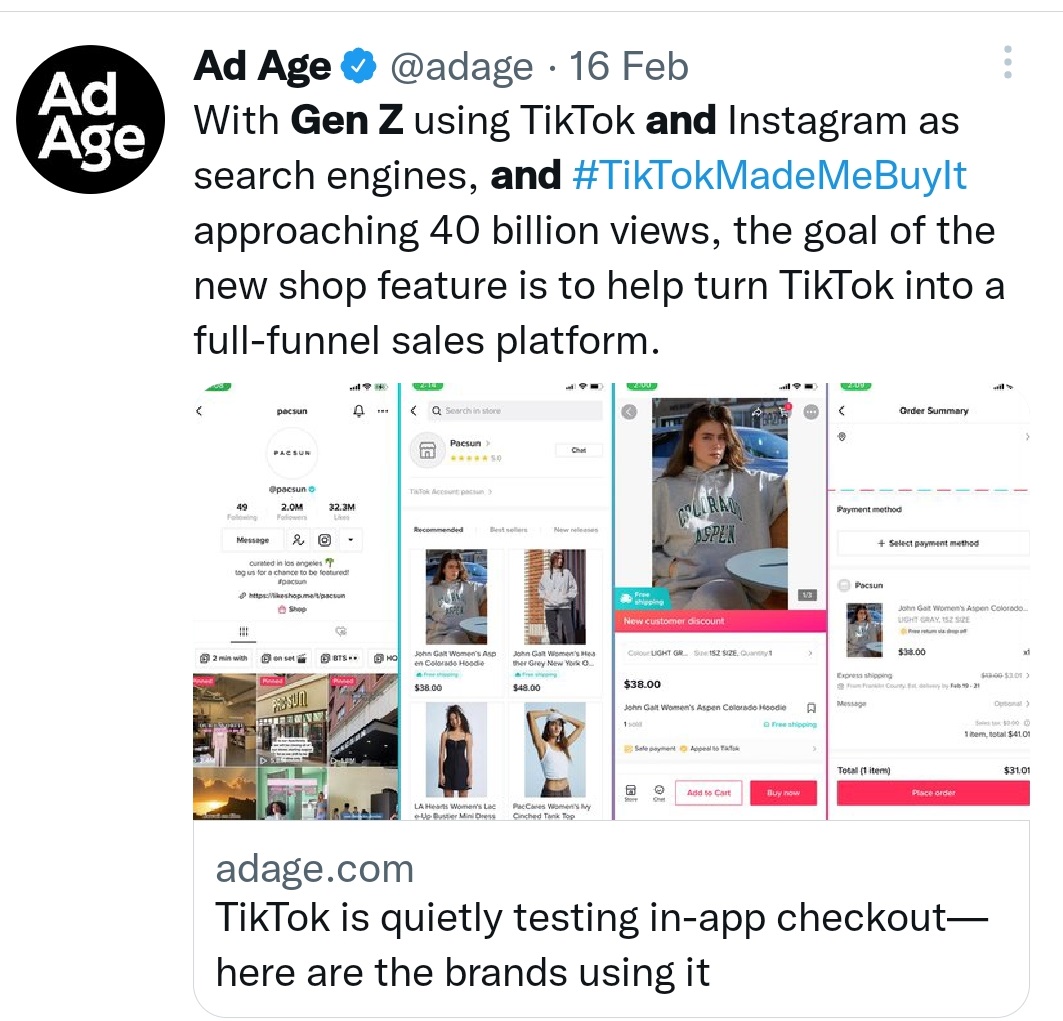
For instance, #Tiktokmademebuythis was trending in 2022, with Gen Z sharing the images of their purchases that they attributed to TikTok’s influence. The hashtag went viral, with many people sharing images of their purchases on the platform. From makeup and beauty products to clothes, furniture, and even food, users were eager to show off their purchases.

Social media platforms such as TikTok have become a powerful influencer in terms of what GenZ buy. With its huge user base and reach, it provides companies with an avenue to market their products and services to Gen Z consumers.
Gathering Data and Insights
Gen Z is a digital-savvy generation, and their online buying behavior, preferences, and leanings are constantly evolving. Businesses that wish to stay ahead of the curve should create competencies to understand their target audiences thoroughly. Another way businesses can benefit from Gen Z’s social media presence is by gathering data and insights on their target audience. Companies can use social media to gather data on what Gen Z are interested in, what they are talking about, and even what they are buying. This data can be used to inform product and marketing decisions, as well as to tailor campaigns to better meet the needs of the target audience. Brands also use tools like social media listening software to collect and analyze data shared by online users.
The online platforms have significant behavioral information and personal data of Gen Z individuals gathered during the process of socializing on these platforms. One more reason why brands are beelining up on social media is that most of the data is true and accurate. The reason for the accuracy lies in the way social media platforms earn their revenues.
The advertisers will benefit and put more money into running social media ads only when consistent and true identity is projected by users on social media platforms. Truthful consumer data is conducive to conversion. This ultimately increases ad revenue and profitability for social media platforms.
The world’s most powerful social media platforms benefit if individuals maintain their true, transparent, and uniform identity on their social networks due to ad revenue reasons.
This is why social media platforms have features that help them collect relevant and accurate data about their users.
For example– Profile/Bio section:
Profile features on social media allow users to write salient aspects of their personal, professional, and behavioral identities. These profiles are visible to friends and connections who may also know the person offline. Therefore, this puts a limit on any exaggeration that anyone can put in their profiles.
Online users are inclined and compelled to present some factors of their real-life identity in their profiles as they have to face their peers, and peers will not validate any deviation.
This is why online profiles are valuable assets for advertisers and justifies the enormous ad spending of brands on digital platforms.
Building Relationships and Community
Businesses can also benefit from Gen Z’s social media presence by building customer relationships and creating a community around the brand. Businesses can use social media to build relationships with diverse influencers and leverage their influence to reach a wider audience. Businesses can also take advantage of Gen Z's social media presence by collaborating with influencers. Gen Z is highly influenced by its peers and relies heavily on social media for product recommendations. By working with influencers, businesses can tap into Gen Z's social media presence and reach a broader consumer base. Deploying an affiliate tracking software to monitor influencer marketing progress will further help companies expedite and streamline their campaigns.
Online venues also offer Gen Z a route to skip the job market in an unconventional way and pursue their entrepreneurial efforts. Social media influencers are now a mainstream breed of celebrities who can affect purchasing decisions and play a crucial role in the attention economy (more followers, more power). Those who have more followers have more monetization opportunities, with more brands reaching out to them for collaborations.
Bretman Rock, the Instagram influencer with 18.5 million followers, is the official face of Nike’s Pride campaign.
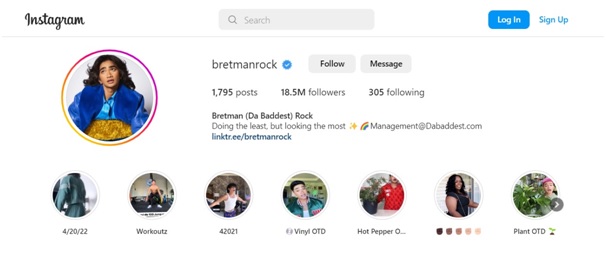
Addison Rae, the 22-year social media influencer with 39 million followers on Instagram, has partnered with brands like Reebok, L'Oréal, Hollister, and American Eagle.

The 21-year-old Gen Z influencer with 73 million TikTok likes, Anastasia Kingsnorth, collaborated with the fashion brand In the Styleas a brand ambassador.

As Gen Z idolizes social media influencers more than traditional celebrities, such as film stars and sports personalities, even brands are changing their ambassadors to stay more relevant to Gen Z.
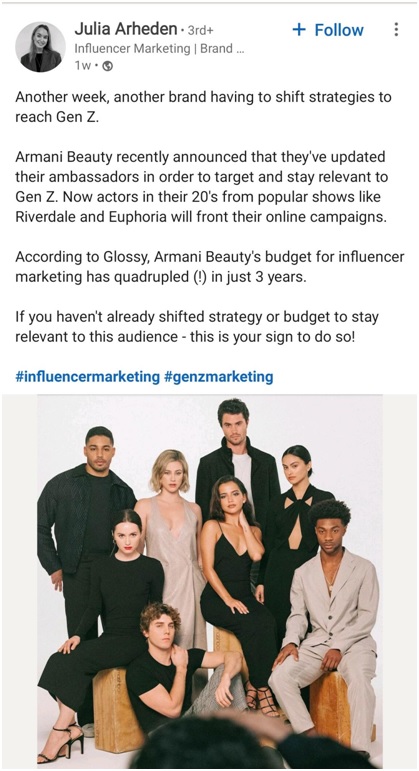
Reach a More Diverse Audience
Gen Z, also known as digital natives, are the largest and most diverse group of consumers.
Gen Z represents a large portion of the current consumer base, and tapping into their social media presence can help businesses reach a broad audience. Businesses can use Gen Z's presence on social media to reach a more diverse audience. Businesses can broaden their reach by creating content tailored to Gen Z and attracting more customers from different backgrounds.
Building Unique Experiences for Customers
Businesses can use Gen Z's presence on social media to create unique experiences for their customers. By leveraging emerging technologies such as augmented reality and virtual reality, businesses can create immersive experiences for their customers and provide them with an enhanced customer experience.
The unique online behavior of Gen Z necessitates brands to reconsider their branding and marketing strategies. Businesses aspiring to target Gen Z should plug into social media platforms such as Facebook, Instagram, TikTok, and gaming platforms too that have social media type features.
Businesses can use tools such as social media management software and customer experience tools to provide customer support on social media and respond to complaints quickly, thereby improving customer satisfaction.
Key Trends in Online Identity Formation for GenZ
Generation Z’s Behavior is more Curatorial on Online Platforms:
The initial days of social media were marked by people sharing everything without much curation. Today, Gen Z social media users carefully decide what they post on social media channels. Much curation happens before anything goes online.
Most shared images are of vacations, new outfits, landscapes, and selfies, achievements. Even depression and feeling low images are also common. Everything GenZ posts is the curation of their own identities.
While the curation has increased, it has not lowered the amount of media that goes on social networking sites. Gen Z is more open when it comes to self-disclosure and confessions. The generation doesn’t hesitate to share private information (relationships, breakups, mental state, getting fired from a job, etc.) that their previous generations tried to keep private.
GenZ sees Social Networks as More Democratic than the Physical World
The vision of online identity is more powerful for GenZ than any other generation as it has seen many rising high via social media networks. Online networks are a more democratic form of media landscape where talented people can gain followers and command significant social influence. GenZ has witnessed how self-branding and success on online platforms evolve one’s identity and provides an easy route to social and economic well-being.
Gen Z has limitless opportunities for self-presentation with a new wave of commercial culture. (DScout)
Online Identity is also Contextual Like the Physical World Identity:
Personal identity is contextual, and it changes as per the situation. A person may project a different identity and behavioral attributes at work and completely different at home or with relatives. Similarly, online identities vary based on the platform and its context. A person posting pictures of him/her sleeping during the day on Instagram will not post the same on Linkedin.
A research survey by Dscout further found that more than 50% of Gen Z respondents tell different stories about who they are, depending on the context and situation. Gen Z modifies its identity to match contextual and environmental requirements.
Encounter with online platforms repurposes GenZ’s self-identity excursion
Gen Z’s behavior on social media and other online platforms tends towards identifying oneself as a ‘persona’ rather than a ‘person.’ The self-identity merges into a brand identity, and Gen Z participants are busy creating their personal brand. This is one reason why most social media posts display only the glamorous, joyful, and merrier lives of people. Social popularity is now considered to be a ‘capital’ and an ‘asset,’ and one’s social footprint may guide one’s self-esteem.
24/7 access to social lives
The online world is different from the physical one. When GenZ participates on online channels, they are aware that they are always in a company and that there is an ever-present audience. This gives them a sense of exposure and access that is impossible in the physical world. Also, it is the only channel where they have instant access to the lives of others. Here, GenZ gets virtual access to others’ private lives, their birthdays, vacation posts, success stories, asset purchases, etc.
Gen Z is Willing to Share Personal Data for Personalized Experiences
Generation Z is very knowledgeable when it comes to technology. They are comfortable with the idea of having multiple online identities, with both a real and a fake social media account, often to hide certain parts of their personal lives. Gen Z is the biggest believer and user of tech companies like Amazon, Netflix, YouTube, Google, etc., and these companies top the chart as favorite brands of Gen Z. The common thing with all these brands is that they all offer personalized experiences.
Generation Z is not oblivious to how these brands utilize users' personal data; in fact, they have a better understanding of it than other generations. Gen Z actively and willingly engages in the trade-off. For this, they receive an incredibly personal experience, which strengthens their trust.
Gen Z: A Generation that Prioritizes Self-Expression
A Generation that favors the planet over profit:
Gen Z has grown up in an era of climate change and global economic uncertainty and is more conscious of its social and environmental footprint than any other generation before them. Gen Z is leading the charge for conscious consumerism and favoring ‘Planet over Profit.’ Gen Z is drawn to companies that prioritize sustainability, are socially responsible and environmentally friendly, and follow ethical practices.
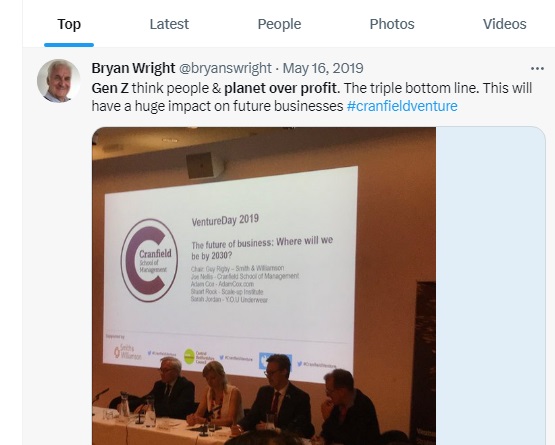
The Planet over Profit movement is largely driven by Gen Z’s desire and expression for social justice and environmental protection.
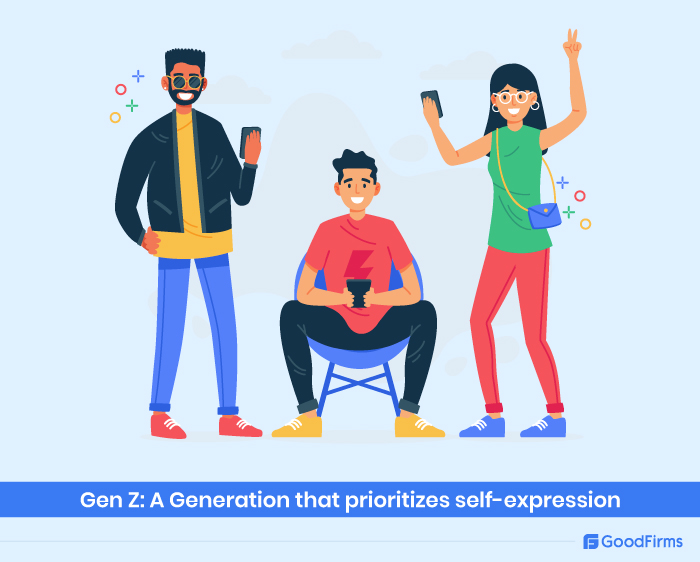
One of the defining factors of Gen Z consumerism is the importance of self-expression. As a generation that has grown up with technology, these post-millennials are accustomed to always having a platform to share their thoughts and ideas.
Gen Z consumers are more drawn to brands that allow them to express themselves and show their individuality.
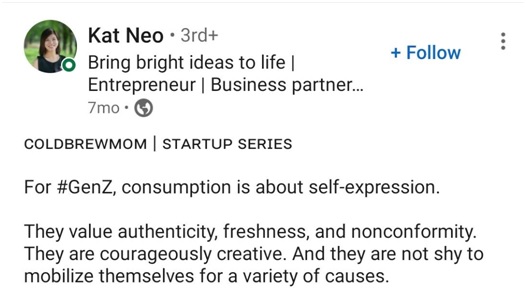
For Gen Z, self-expression is more than just buying a product or service. It is about discovering who they are and how they want to express themselves to the world. Even Gen Z’s approach to war (Ukraine-Russia) is different. These i-generation digital natives are expressing their views on the war in their own unique way.
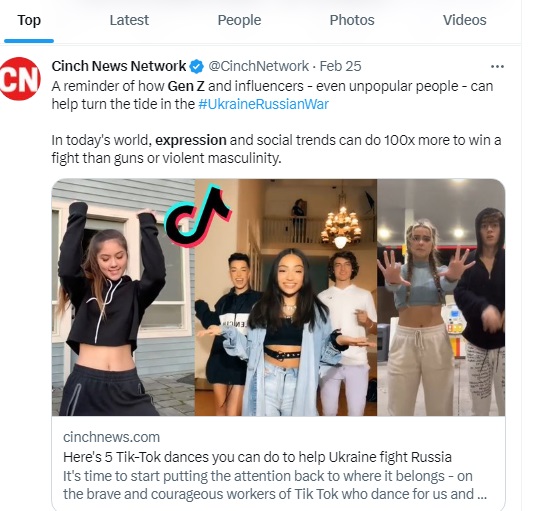
So, how can businesses benefit from Gen Zers Online Expression?
Companies need to recognize the values and interests of Gen Z and model products and services that convey those values. Companies can tap into Gen Z's powerful demographic by creating an emotional connection and providing opportunities for self-expression.
Below is an example of how companies can lure Gen Z consumers by creating products that voice their values.
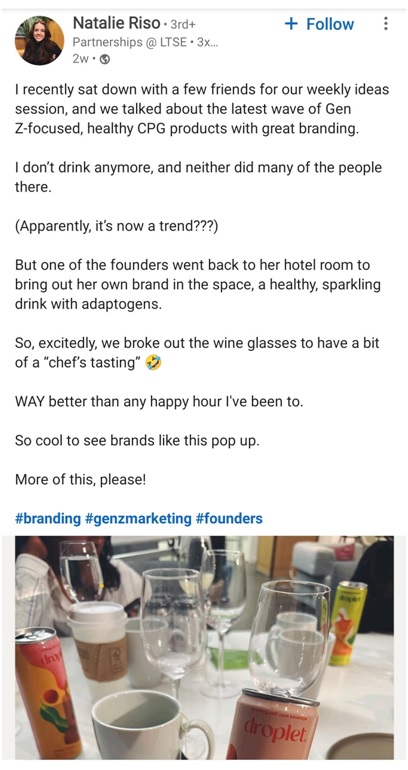
Another example is how the Skin product brand Clean & Clear is rebranding its products to cater to Gen Z’s values. Clean & Clear’s digital campaign #Don’tPauseForPimples aligns with Gen Z’s body positivity expressions.
As Gen Z does not subscribe to any particular gender or traditional gender roles, Gen Z is more supportive of gender-free clothing fashion brands. Brands like ClHu that offer gender-fluid apparel are popular among Gen Z.
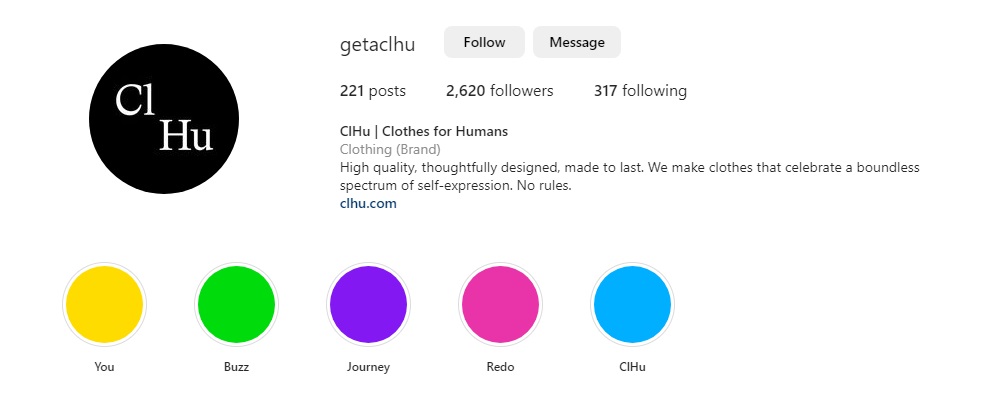
ClHu markets its clothing products as ‘for humans’. Their tagline - ‘we make clothes that celebrate a boundless spectrum of self-expression’ appeals immensely to Gen Z. TomboyX, Human Nation, and Wildfang are other popular brands that are creating similar products focussed on Gen Z.
For GenZ, buying and using items is a way of representing who they are. They prioritize brands that break conventions and deliver products that make the world a better place and allow them to express their views openly. Brands can assimilate these aspects in their products and services to penetrate Gen Z dominated markets.
Conclusion:
While the previous generations have been very mindful of the ongoing changes in the world– the breaking of conventions and crumbling of old ways-Gen Z may not even notice it. Their eyes are on their mobile screens, and their mind is in a virtual online world. Gen Z has a strong connection with their online identity. These iGen or meme lords sway towards products, services, brands, and even celebrities that value self-expression.
While the previous generation may see social media or online networks as intruders of their privacy, disruption of their real-world life, and sources of lies, abuse, and conflicts, Gen Z celebrates them. Generation Z is more fluid and open about expressing themselves online.
Their familiarity with these platforms since birth makes them see social media as an integral part of their lives, and they are not reserved about expressing themselves on these channels, unlike their preceding generations. GenZ undoubtedly is shaping the future of business. The gravity is high. Businesses should accommodate them, allow value creation, and shift from affluence to influence.






